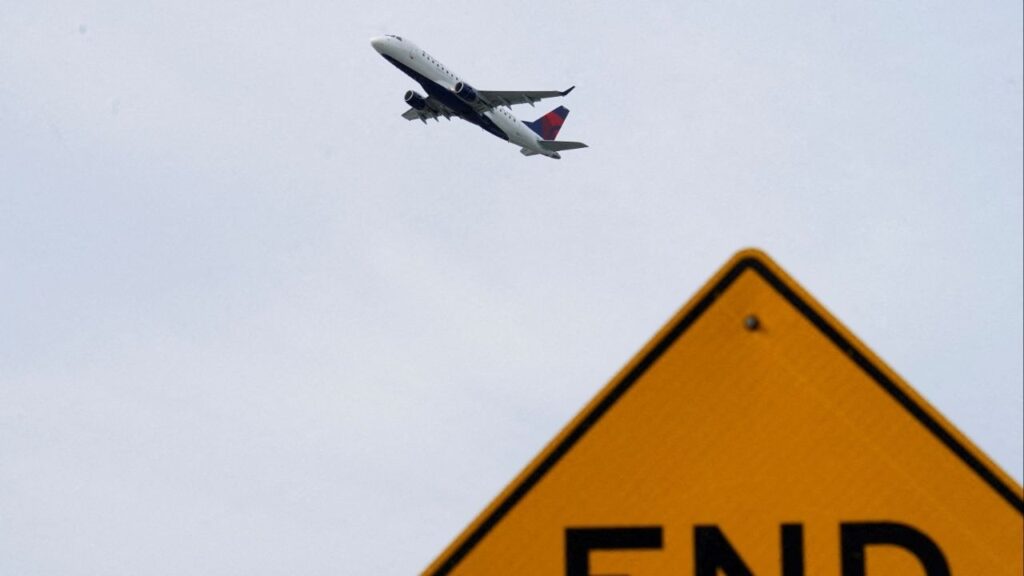Smoke rises in the sky following U.S-led airstrikes in Sanaa, Yemen, February 25, 2024. (REUTERS/Adel Al Khader/File Photo)

- Yemen’s Houthis said their ceasefire deal with the U.S. excludes Israel, vowing to continue attacks against Israeli targets.
- President Trump announced an end to U.S. airstrikes on Houthis after they agreed to halt attacks on U.S. ships.
- Despite U.S. ceasefire, Houthis launched drones toward Israel; Israel responded with airstrikes on Yemen’s Sanaa and Hodeidah ports.
Share
|
Getting your Trinity Audio player ready...
|
ADEN (Reuters) – A ceasefire deal between Yemen’s Houthis and the U.S. does not include sparing Israel, the group said on Wednesday, suggesting its shipping attacks that have disrupted global trade and challenged world powers will not come to a complete halt.
President Donald Trump announced on Tuesday the U.S. would stop bombing the Iran-aligned Houthis in Yemen, saying that the group had agreed to stop attacking U.S. ships.
After Trump made the announcement, Oman said it had mediated the ceasefire deal to halt attacks on U.S. vessels.
There have been no reports of Houthi attacks on shipping in the Red Sea area since January.
“The agreement does not include Israel in any way, shape or form,” Mohammed Abdulsalam, the chief Houthi negotiator, told Reuters.
“As long as they announced the cessation (of U.S. strikes) and they are actually committed to that, our position was self-defence so we will stop.”
The Houthis said they targeted Israel with drones, the group’s military spokesperson said in a televised address later on Wednesday.
He reiterated they would also carry out strikes against the U.S. if Washington resumes its attacks on Yemen.
The Israeli military said earlier in the day it intercepted a drone that was launched from the east, without identifying its exact location. Israeli media, however, reported a missile which was launched from Yemen at Israel fell outside the country’s borders.
While tensions may have eased between the United States and the Houthis, a resilient force that withstood years of heavy Saudi-led bombing in Yemen’s civil war, the agreement does not rule out attacks on any other Israel-linked vessels or targets.
Iran welcomes the “end of the U.S. aggression” on Yemen, its Foreign Ministry spokesperson Esmaeil Baghaei said on Wednesday, thanking Oman for its efforts in this regard.
The U.S. intensified strikes on the Houthis this year, to stop attacks on Red Sea shipping. Rights activists have raised concerns over civilian casualties.
“They said ‘please don’t bomb us any more and we’re not going to attack your ships’,” Trump said of the Houthis during an Oval Office meeting with Canadian Prime Minister Mark Carney. “And I will accept their word, and we are going to stop the bombing of the Houthis effective immediately.”
Gaza War
The Houthis have been firing at Israel and at shipping in the Red Sea since Israel began its military offensive against Hamas in Gaza after the Palestinian militant group’s deadly attack on Israel on October 7, 2023.
The U.S. military has said it has struck more than 1,000 targets since its current operation in Yemen, known as Operation Rough Rider, started on March 15. The strikes, the U.S. military said, have killed “hundreds of Houthi fighters and numerous Houthi leaders”.
Tensions have been high since the Gaza war began, but have risen further since a Houthi missile landed near Israel’s Ben Gurion Airport on Sunday, prompting Israeli airstrikes on Yemen’s Hodeidah port on Monday.
The Israeli military carried out an airstrike on Yemen’s main airport in Sanaa on Tuesday, its second attack in two days on Iran-aligned Houthi rebels after a surge in tensions between the group and Israel.
Under former President Joe Biden’s administration, the U.S. and Britain retaliated with air strikes against Houthi targets in an effort to keep open the crucial Red Sea trading route – the path for about 15% of global shipping traffic.
After Trump became U.S. president in January, he decided to significantly intensify air strikes against the Houthis. The campaign came after the Houthis said they would resume attacks on Israeli ships passing through the Red Sea and Arabian Sea, the Bab al-Mandab Strait and the Gulf of Aden.
On April 28, a suspected U.S. airstrike hit a migrant centre in Yemen, and Houthi TV says 68 people were killed.
—
(Reporting by Mohammed Ghobari, Writing by Nayera Abdallah and Michael Georgy, Editing by Alex Richardson and Diane Craft)



















